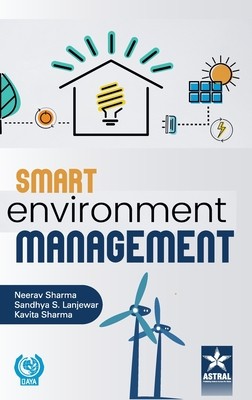
- We will send in 10–14 business days.
- Author: Neerav Sharma
- Publisher: Astral International Pvt. Ltd.
- ISBN-10: 9359199664
- ISBN-13: 9789359199665
- Format: 15.6 x 23.4 x 1.6 cm, kieti viršeliai
- Language: English
- SAVE -10% with code: EXTRA
Reviews
Description
Smart Environmental Management: The role of Science and Society offers a pioneering exploration of how the convergence of modern science, advanced technology, and traditional ecological wisdom can provide comprehensive solutions to these pressing global issues. This book navigates the intricate landscape of sustainability, advocating for the seamless integration of cutting-edge innovations with time-tested practices. It thoroughly examines climate adaptation strategies that not only address environmental vulnerabilities but also foster resilience within communities. By blending scientific, technological, and indigenous knowledge, the book highlights the need for a balanced approach that aligns environmental, societal, and economic objectives in the pursuit of a sustainable future. In addition, the book explores sustainable resource management, demonstrating how traditional ecological practices can be harmonized with modern innovations to ensure the long-term sustainability of ecosystem services. The book also emphasizes on the transformative role of electric vehicles (EVs) in environmental planning and urban development. By examining the technological advancements propelling the EV movement, the book illustrates how this shift can significantly reduce carbon footprints, marking a pivotal change in transportation and urban sustainability. Targeting scholars, policymakers, environmental experts, and innovators, this work is more than a collection of insights-it is a call to action.
EXTRA 10 % discount with code: EXTRA
The promotion ends in 21d.14:27:22
The discount code is valid when purchasing from 10 €. Discounts do not stack.
- Author: Neerav Sharma
- Publisher: Astral International Pvt. Ltd.
- ISBN-10: 9359199664
- ISBN-13: 9789359199665
- Format: 15.6 x 23.4 x 1.6 cm, kieti viršeliai
- Language: English English
Smart Environmental Management: The role of Science and Society offers a pioneering exploration of how the convergence of modern science, advanced technology, and traditional ecological wisdom can provide comprehensive solutions to these pressing global issues. This book navigates the intricate landscape of sustainability, advocating for the seamless integration of cutting-edge innovations with time-tested practices. It thoroughly examines climate adaptation strategies that not only address environmental vulnerabilities but also foster resilience within communities. By blending scientific, technological, and indigenous knowledge, the book highlights the need for a balanced approach that aligns environmental, societal, and economic objectives in the pursuit of a sustainable future. In addition, the book explores sustainable resource management, demonstrating how traditional ecological practices can be harmonized with modern innovations to ensure the long-term sustainability of ecosystem services. The book also emphasizes on the transformative role of electric vehicles (EVs) in environmental planning and urban development. By examining the technological advancements propelling the EV movement, the book illustrates how this shift can significantly reduce carbon footprints, marking a pivotal change in transportation and urban sustainability. Targeting scholars, policymakers, environmental experts, and innovators, this work is more than a collection of insights-it is a call to action.


Reviews